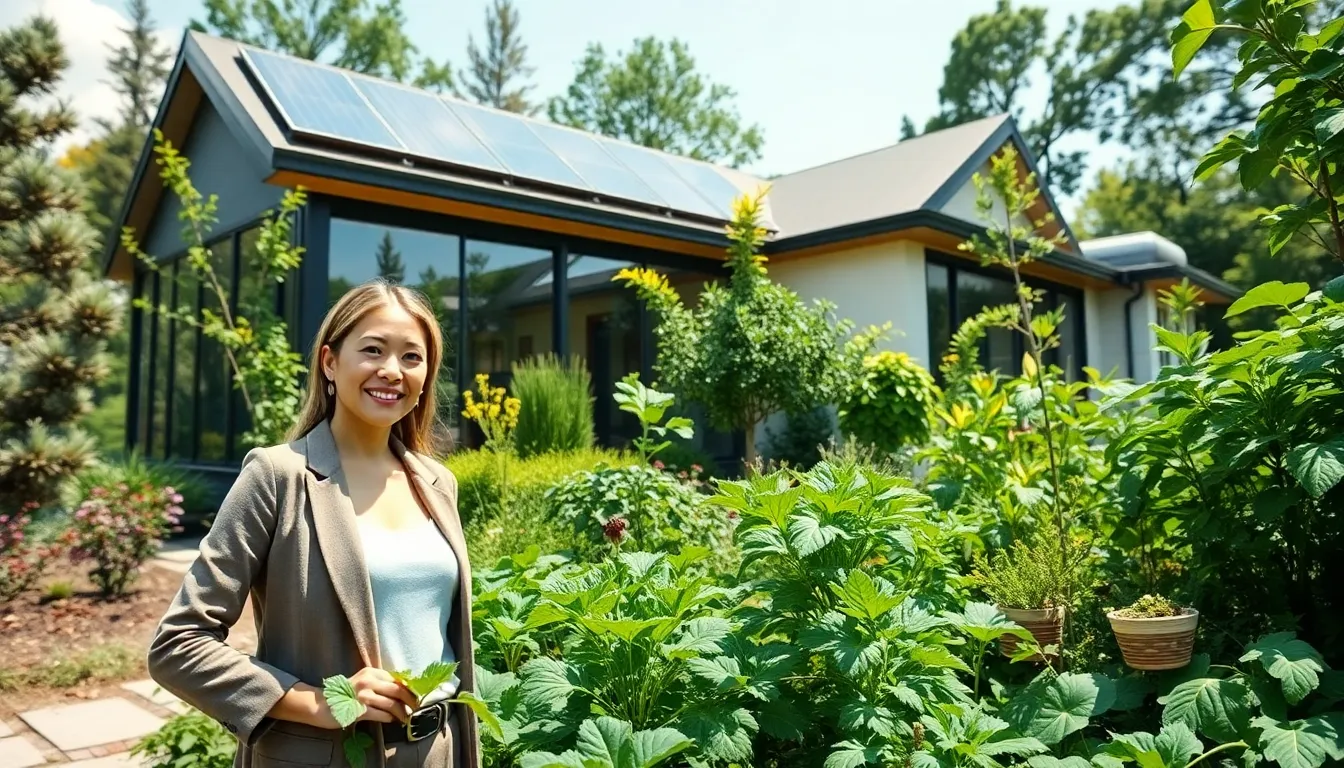Relationships can feel like a rollercoaster ride—thrilling highs and gut-wrenching lows. But what if there was a way to smooth out those bumps and keep the ride enjoyable? Improving your relationship doesn’t have to involve grand gestures or endless therapy sessions. Sometimes, it’s the little things that make a world of difference, like remembering to put the toilet seat down or not stealing the covers every night.
Table of Contents
ToggleUnderstanding Relationship Dynamics
Understanding relationship dynamics involves recognizing how interactions influence emotional connections. Communication and individual needs play critical roles in creating a healthy partnership.
The Importance of Communication
Effective communication serves as the foundation for successful relationships. Couples should openly share thoughts and feelings to enhance understanding. Active listening fosters deeper connections, signaling to partners that their emotions matter. Engaging in regular conversations about daily experiences strengthens bonds. Clarifying intentions and discussing problems helps prevent misunderstandings and resentment.
Recognizing Individual Needs
Every partner has unique needs that deserve attention in a relationship. Identifying these needs forms a deeper connection between partners. Respecting differences strengthens relationships, making room for personal growth. Supporting each other’s goals and desires boosts overall satisfaction. Understanding these needs allows couples to cultivate an environment of love and support where both partners thrive.
Building Trust and Emotional Intimacy

Trust and emotional intimacy play crucial roles in a healthy relationship. Partners can enhance their connections through honest exchanges and commitment to each other.
The Role of Vulnerability
Vulnerability fosters deep connections. Sharing fears and insecurities strengthens bonds between partners. When one partner opens up, it often encourages the other to reciprocate. This exchange of sensitive feelings promotes mutual understanding. Vulnerability also creates a safe space where partners feel supported. Acknowledging imperfections allows for genuine acceptance of each other. Embracing vulnerability can shift a relationship toward greater intimacy and trust.
Practicing Active Listening
Active listening enhances communication significantly. It requires fully engaging with a partner during conversations. One way to practice active listening is by maintaining eye contact, showing genuine interest. Reflecting on what a partner says demonstrates understanding and validation. Paraphrasing their thoughts can clarify and show attentiveness. Avoiding distractions, such as phones or TVs, helps maintain focus. Regular practice can prevent misunderstandings and create a more empathetic environment. Engaging in thoughtful dialogue deepens emotional connections and promotes a healthier relationship.
Conflict Resolution Strategies
Conflict resolution is key to improving relationships. Addressing disagreements constructively fosters deeper emotional connections.
Identifying Triggers
Recognizing triggers helps couples manage conflicts effectively. Each partner should reflect on what typically causes discomfort. Emotions often flare during specific discussions, highlighting the need for awareness. Identifying personal reactions can clarify issues that require attention. Discussing triggers openly with a partner promotes understanding and empathy. When both partners share experiences, it builds a supportive environment for conflict resolution.
Techniques for Healthy Disagreements
Employing techniques for healthy disagreements can reduce tension. Initiating conversations with “I” statements can express feelings without assigning blame. Staying focused on the issue rather than personal attacks maintains respect. Taking breaks during heated moments allows emotions to cool down. Reframing disagreements as opportunities for growth encourages positive dialogue. Prioritizing listening over speaking can lead to deeper insights and understanding. Committing to resolution helps maintain trust and emotional intimacy within the relationship.
Nurturing Connection and Quality Time
Establishing a deeper bond requires an intentional focus on shared time and experiences.
Creating Shared Experiences
Participating in activities together strengthens relationships. Couples can explore new hobbies, whether it’s cooking classes or hiking local trails. Engaging in these experiences can foster unity and understanding. Regular date nights create cherished memories, driving couples closer together. Even mundane tasks, such as grocery shopping or cleaning, can transform into shared adventures. Maintaining a balance of fun activities and daily responsibilities nurtures connection and builds teamwork. Lasting relationships thrive on a combination of meaningful experiences and shared goals.
The Importance of Physical Affection
Physical affection plays a vital role in relationship dynamics. Simple gestures like holding hands or hugging elevate emotional bonds. Couples may find that affectionate actions contribute to a sense of safety and security. Regular touch reduces stress and promotes feelings of love and belonging. Incorporating daily moments of intimacy, such as snuggling on the couch or stealing quick kisses, enhances overall satisfaction. Prioritizing physical affection can lead to deeper emotional connections, reinforcing trust and fostering closeness within the partnership.
Improving a relationship is about embracing the little things that make a big difference. By focusing on thoughtful gestures and open communication couples can create a nurturing environment where both partners feel valued. Trust and emotional intimacy serve as the backbone of a healthy partnership allowing for vulnerability and understanding.
Conflict resolution strategies can transform disagreements into opportunities for growth fostering deeper connections. Engaging in shared activities and prioritizing quality time strengthens bonds and enhances overall satisfaction. By integrating these practices into daily life couples can cultivate a thriving relationship built on mutual respect and love.





